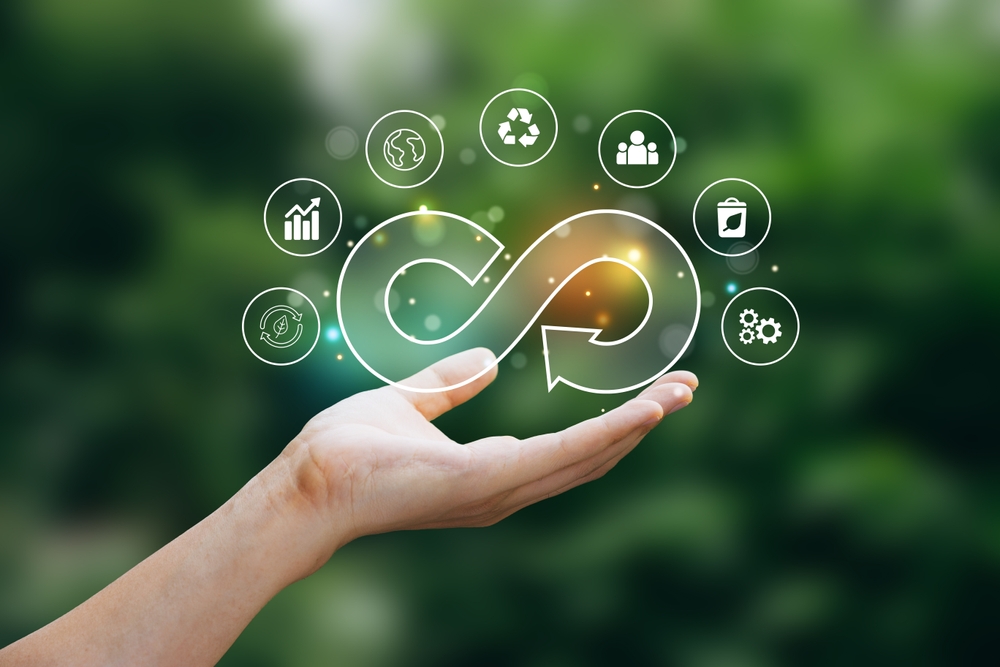ARANIA embraces the circular economy, with 98.7% of waste successfully recycled
In a challenging sector like the steel industry, ARANIA stands out for its long-term dedication to the circular economy, enabling it to reuse or recover 98.7% of waste from precision cold-rolled steel production.
This approach underpins a sustainability-centred corporate vision, where each piece of waste is viewed as a chance for reuse and recovery, effectively minimising environmental impact and optimising resources.
In line with its goal of carbon neutrality by 2040, ARANIA has created a widely recognised, comprehensive system that goes beyond basic sustainable practices, committing to a constantly advancing circular economy.
ARANIA’s participation in the Schaeffler Sustainability Summit reaffirms its leadership in circular economy and industrial sustainability. At this forum, the company shared its strategies for maximising resource utilisation and minimising waste with other firms committed to reducing environmental impact, showcasing an impressive reuse rate of 98.7% of waste. This technical and organisational accomplishment, especially notable in the field of rolled steel, reflects a long-term commitment to continuous improvement and optimisation of the company’s processes.
With a 100% reusable raw material, the steel industry —and by extension, ARANIA— benefits from a significant advantage. All metal scrap produced can be completely recovered and reused as raw material for manufacturing new steel.
Cutting fluids, such as coolants and lubricants specifically designed for metalworking processes, also play an important role in ARANIA’s circular economy.
The company has managed to reduce the use of these fluids by 45% and also works with external partners to recover the hydrocarbons present in these fluids, utilising them as raw materials in other sectors and industries.
At the same time, ARANIA is collaborating with partners on an ambitious technique for the full recovery of ferrous chloride, a by-product of steel production that is reused in the water treatment industry.
This compound acts as a coagulation agent in water purification, allowing ARANIA to convert potential waste into an asset for environmental applications, creating synergies between sectors and minimising hazardous waste generation.
Reusing plastic packaging and containers is another cornerstone of ARANIA’s circular economy strategy. By implementing a reverse logistics system, these containers are sent back to suppliers for reuse, effectively reducing plastic waste. This approach optimises the lifecycle of materials and reduces the demand for new plastic packaging, one of the most pressing environmental problems of the 21st century. In this way, ARANIA cuts both its carbon footprint and production costs.
In alignment with this approach, ARANIA offers shipment options without packaging, in eye-to-wall format, and without pallets, according to product type and customer requirements. For crucial materials like anti-corrosion film, the thickness has been reduced to a minimum, cutting the environmental impact per shipment by nearly 50% while
ARANIA has implemented a pallet return program to recover these materials once used in the transport and storage of products, as mentioned in the article Decarbonising Logistics. . This project enables wooden pallets to be inspected and reintroduced into the supply chain, thereby reducing the demand for new supports. The wood is also locally sourced and sustainably managed, decreasing environmental impact and creating a long, responsible usage cycle for this natural resource.
Information technology is set to play a central role in decarbonising the steel industry. In line with its circular economy strategy, ARANIA is pursuing multiple projects that leverage robotic process automation (RPA) and artificial intelligence (AI) to optimise resource use and reduce waste throughout production stages.
ARANIA’s ongoing commitment to resource efficiency and waste reduction was recently recognised with the EcoVadis Gold Medal, placing the company among the top 5% of companies assessed for sustainability. This distinction confirms the value of ARANIA’s circular economy strategy and reinforces its leadership in responsible practices.
The objective of ARANIA is to achieve carbon neutrality by 2040, anticipating the deadline set by the European Union and taking the lead in terms of decarbonisation efforts in the cold-rolled steel industry in Southern Europe.
Achieving 98.7% waste reuse is just one milestone in ARANIA’s journey towards a fully sustainable production process. With a continuous improvement mindset and a focus on circular economy principles, ARANIA strives to reduce its emissions and supply lower-emission products that support supply chain decarbonisation, moving closer to a zero-waste, minimal-impact operation.
this action plan includes the reduction of the company’s carbon footprint through the management of GoO (Guarantees of Renewable Origin) and the HAMBEMET project together with Siderex, for the measurement of the Product Environmental Footprint (PEF).
Through the optimisation of all production stages and the promotion of sustainability partnerships, ARANIA positions itself as a benchmark for circular economy and efficiency in the rolled steel industry, serving as a model of innovation for companies and stakeholders across its value chain.
